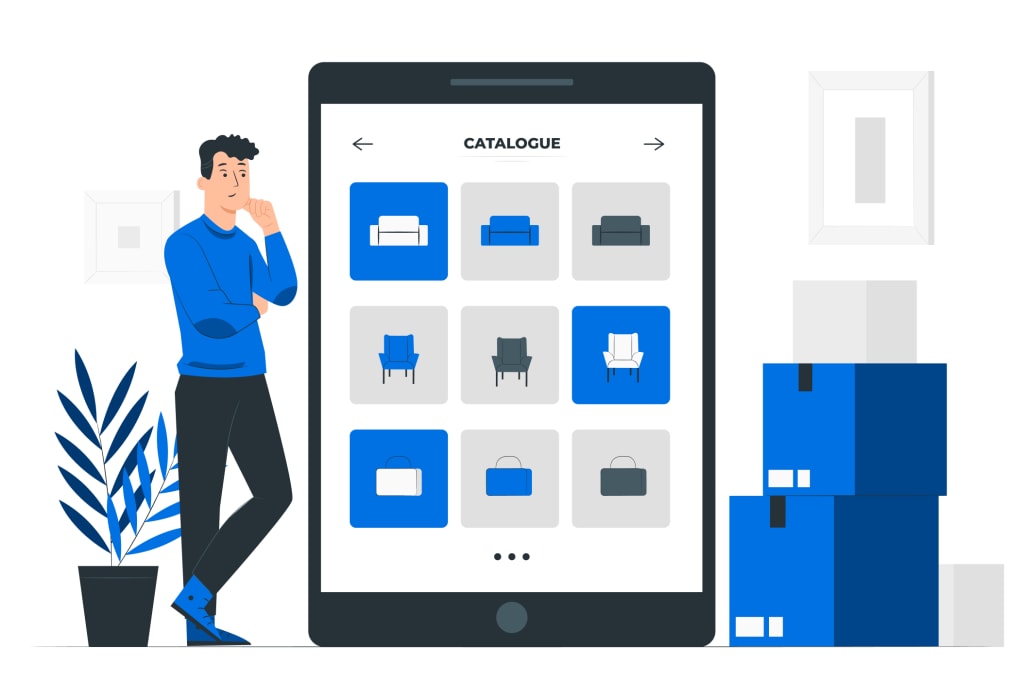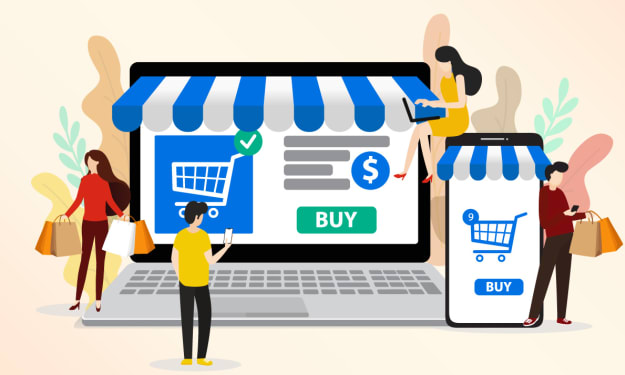Marketplace Platform: The Ultimate E-commerce Solution
An open space where commercial dealings take place, states the dictionary when searched about the definition of marketplace.

Well, in the present era of post-pandemic, technical advancements, and ecommerce revolution, the definition of the marketplace has changed a bit. Unlike its previous version, the new age marketplace is an online e-commerce marketing place or a website where one can find different brands or products that come from multiple vendors, shops, or persons showcased on the same platform. In short, it is an online marketplace often referred to as an electronic marketplace that connects sellers and buyers where all transactions are managed by the website owner.
Now that you are aware of the Marketplace–especially the one (ecommerce marketplace) that we are talking about, let’s find out more about the ecommerce marketplace, which is also referred to as a multi-vendor ecommerce marketplace. The multi vendor ecommerce marketplace platform is perhaps the next most important thing that one should be aware of after knowing about the ecommerce marketplace.
What is a multi vendor ecommerce marketplace platform?
A multi-vendor ecommerce marketplace platform is an online platform that enables multiple vendors or sellers to offer their products or services for sale on a single website or online marketplace. The platform owner or operator typically provides the infrastructure and tools necessary for vendors to list and sell their products, process payments, and fulfill orders.
Here are some of the key features of a multi vendor ecommerce marketplace platform:
Vendor registration and account management: The marketplace platform typically offers a registration process for vendors to create their own accounts, upload their product catalog, set prices, and manage their own sales and promotions.
Product catalog management: Vendors can upload product images, descriptions, and specifications, set pricing, and manage inventory levels. The multi vendor marketplace platform owner typically provides guidelines and standards for product information and images to ensure consistency across the marketplace.
Payment processing: The platform provides payment processing and management tools to facilitate transactions between buyers and vendors. This typically involves the use of a payment gateway to securely process transactions, and the platform charges a commission or fee for each transaction.
Order management: The multi vendor ecommerce marketplace platform offers order management tools to vendors, including tracking of sales. The platform may also provide tools to manage returns and refunds.
Customer service: The platform typically provides customer service to buyers, handling inquiries, and complaints. Vendors may also offer their own customer service, but the platform owner is ultimately responsible for ensuring a high level of customer satisfaction.
Marketing and promotions: The platform owner may offer marketing and promotions to vendors to help them increase visibility and sales. This may include email marketing, social media promotion, and paid advertising.
But, how does this ecommerce marketplace function?
The ecommerce marketplace functions with the help of the software, which is said to be the lifeline of the entire marketplace. Marketplace platform typically provides a platform for buyers and sellers to conduct transactions online.
Some of the common functions of marketplace software include:
Product listing: Sellers can list their products with detailed information such as product descriptions, images, and pricing.
Search and browse: Buyers can search for products using tags or apply filters to find what they are looking for.
Shopping cart and checkout: Buyers can add items to their shopping cart and proceed to checkout to complete their purchase.
Rating and reviews: Buyers can leave ratings and reviews on products they have purchased to help other buyers make informed decisions.
Analytics and reporting: The software should provide detailed analytics and reporting to help sellers track their sales performance and make informed business decisions.
Marketing and promotion: The marketplace software should provide tools to help sellers promote their products and drive more traffic to their store.
Customization: The software should allow sellers to customize their store and product listings to match their brand and unique selling proposition.
What are the features of an ideal multi vendor ecommerce marketplace platform?
Good multi vendor marketplace platform should have a number of features that enable businesses to sell products online efficiently and effectively. Here are some key features:
Ease of Use: A good marketplace platform should be user-friendly and easy to navigate, with an intuitive interface that requires minimal technical expertise.
Mobile Responsiveness: With the rise of mobile commerce, the ecommerce software should be optimized for mobile devices, with responsive designs that allow customers to shop on their smartphones and tablets.
Product Management: The multi vendor marketplace platform should allow businesses to manage their product catalog, including product descriptions, images, pricing, and inventory levels.
Order Management: The marketplace platform should enable businesses to manage orders, process payments, and track shipments, as well as handle returns and refunds.
Security: Security is critical for ecommerce platform, which must protect customer data, including personal and payment information. Good multi vendor ecommerce marketplace platform should include features such as SSL certificates, fraud prevention tools, and encryption.
Customization: The platform should be customizable, allowing businesses to create a unique storefront that reflects their brand and identity, with customizable themes, templates, and layouts.
Scalability: The platform should be able to scale with the business as it grows, with the ability to add new products, expand to new markets, and handle increased traffic and sales volume.
Integration: The ecommerce platform should be able to integrate with other business systems, such as accounting software, inventory management tools, and shipping providers, to streamline operations and improve efficiency.
Ecommerce Marketplace is on the rise
Now that you know the marketplace platform and its features, let's find out why it is high time to choose the right ecommerce marketplace platform to reap maximum benefits. According to the experts, the ecommerce marketplace or hyperlocal apps market is expected to reach US$ 8,856.6 million by 2032, states the report of future market insights–the premier provider of market intelligence and consulting services, serving clients in over 150 countries. It further stated that the growth has been forecasted at a CAGR of 22.6% over the forecast period of 2022 to 2032. The report further stated that the hyperlocal delivery app market currently represents around 25% share of e-commerce platform market and the adoption of hyperlocal delivery application in the delivery process has been increased following the rising requirement of quick deliveries and minimum requirement of investments.
India to witness boom in ecommerce marketplace
Economic Survey 2022-23 stated that the shoppers from tier-II and tier-III cities accounted for over 61.3 percent of the overall market share in FY22, increasing from 53.8 percent in FY21. The order volume from tier-II and tier-III cities grew at almost double the pace of tier-I cities, with 92.2 percent and 85.2 percent YoY growth, respectively, in FY22,” the report said.
Takeaway
In conclusion, the marketplaces running through multi vendor platforms are on a rapid rise, and businesses that fail to adapt to this changing landscape risk being left behind. It's high time for businesses to start an ecommerce marketplace and take advantage of the many benefits it offers, such as reaching a wider audience, increasing sales, and improving customer engagement. However, choosing the right multi vendor ecommerce marketplace software is crucial for success, as it will determine the functionality and performance of the online store. With the right ecommerce software, businesses can create a seamless and enjoyable shopping experience for customers while streamlining their own operations. In today's digital age, ecommerce is no longer just an option but a necessity for businesses looking to stay competitive and thrive in the fiercely growing market.
About the Creator
Mohammad Rafe
A freelance Developer and Digital Branding Professional, on a mission to spread awareness on profits emerging from online business market.






Comments
There are no comments for this story
Be the first to respond and start the conversation.